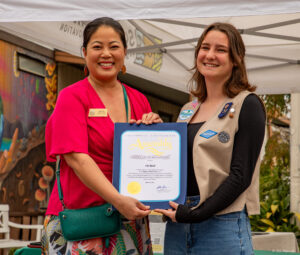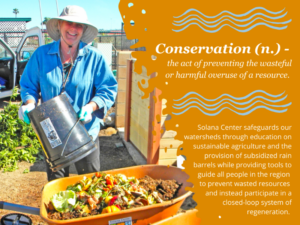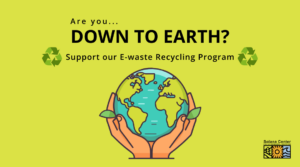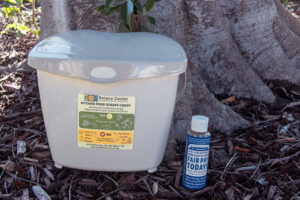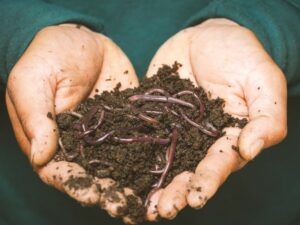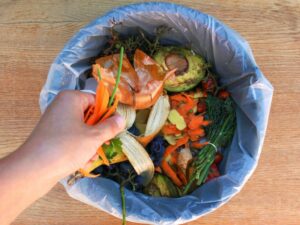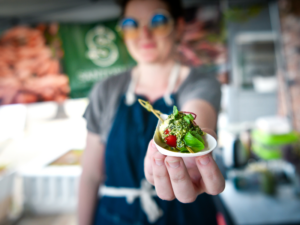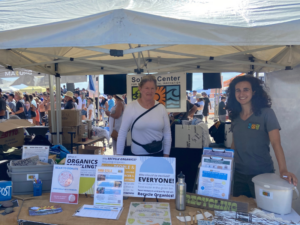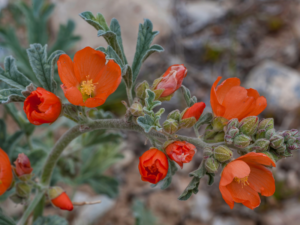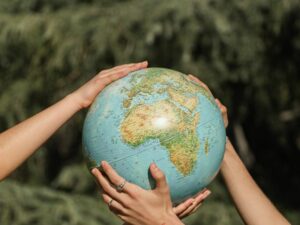Taking on Textile Waste 2024
The Taking on Textiles event was held on March 23, 2024 at Solana Center for Environmental Innovation in Encinitas, CA. It was open to the public. We were grateful for recognition from California Assemblymember Tasha Boerner’s office. District Director Janet Chin spoke to the importance of the event as an early beacon to the increasing…
Read MoreConservation: Programming to nurture the natural world
At Solana Center for Environmental Innovation, we center our work around four pillars: protection, conservation, education, and innovation. Each pillar provides the structure needed to fully address the impacts of climate change in the San Diego region: –Protection, or the safeguarding of the rights of humans and living things to healthy environments with sufficient natural…
Read MoreSupport E-waste Recycling
This April consider a gift that will make a sustainable impact long after Earth Month is over! Electronic waste (e-waste) is the fastest growing solid waste stream in the world, increasing 3 times faster than the world’s population. Although e-waste makes up just 2% of what’s goes to our landfills, it accounts for 70% of the…
Read MoreHow to Keep Your Kitchen Food Scraps Caddy Fresh
Solana Center for Environmental Innovation supports California’s SB 1383 legislation, to divert organic materials such as food and nourish soils through compost production in order to feed future generations. One of the ways we offer support is through our Climate Solutions Resource Center. Did you know we offer products to support your environmental journey? Are…
Read MoreClimate Solutions: What should I do with my worms while on a trip?
Question: “What should I do with my worms while on a trip?” Answer: Depending on the length of your trip, you will likely not need to do anything at all. Even a new population of worms only needs to be monitored every few days to assess how much food was eaten, moisture levels, and whether they need…
Read MoreHow Can Cutting Your Food Waste Help the Climate?
Food waste is a common problem many households and food establishments are faced with. Throwing away food scraps and leftovers that could have been eaten seems like an easy solution but in reality has devastating outcomes. When food waste enters a landfill, it begins contributing to greenhouse gas emissions due to the anaerobic environment. When food…
Read MoreFood Waste Warrior: Liz Murphy of Santosha Nutrition 🍓
Liz Murphy, founder of Santosha Nutrition, speaks on how food waste prevention impacts her San Diego business: “Santosha was founded on the principles of supporting local farmers and lowering waste. When I purchase produce from the market it is really important to me that I use as much of the product as possible. It respects the…
Read MoreWhat’s Solana Center up to for Earth Month? 🌎
Check out our Earth Month events! Workshops Outreach Booths Open Volunteer Opportunities
Read MoreFour Ocean-Friendly Gardening Tips
Many San Diegans are concerned about keeping our waterways clean. In fact, surveys conducted across San Diego County show that more than 50% of residents believe that pollution of our creeks, lakes, and beaches directly affects them and their families. Yet in many urban areas, water runoff is the #1 source of ocean pollution. This…
Read MoreWaste Reduction
Waste reduction is the practice of making less, consuming less, and inevitably disposing of less. Reduction is the ultimate goal, not only because it protects our environment from waste, but because it prevents the destructive processes of extraction and manufacturing that happen upstream of our materials. The world’s population is growing, economies are growing, and…
Read More
